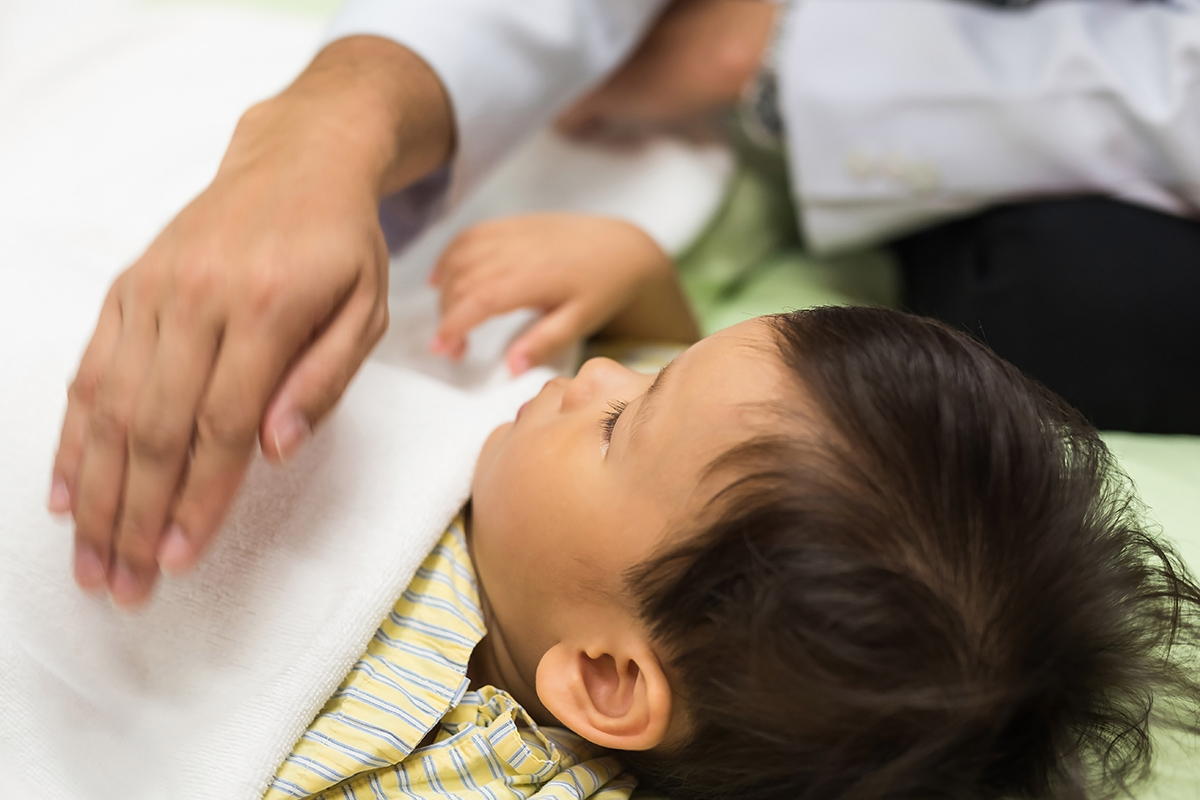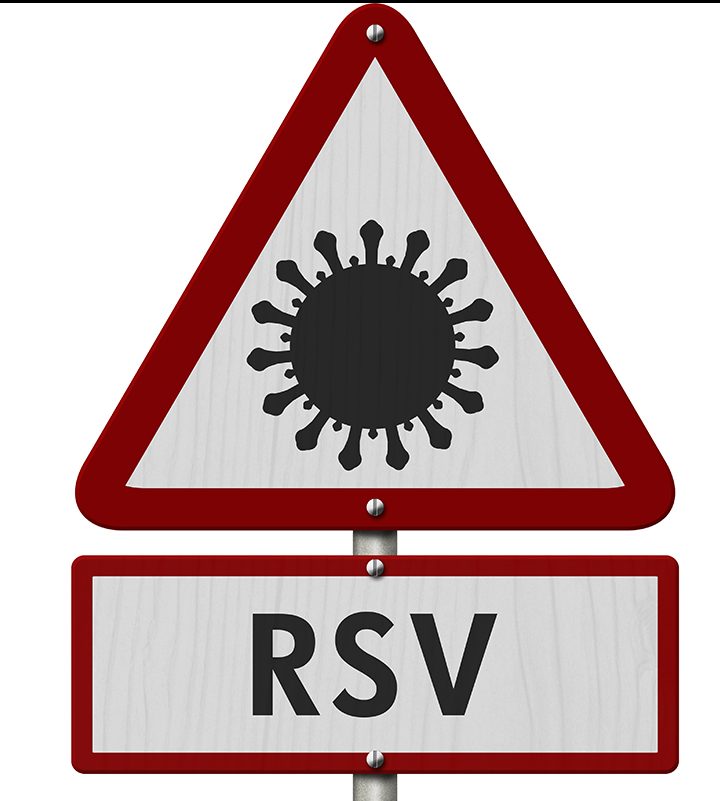Table of Contents
 Pediatric emergency rooms are experiencing a dramatic spike in respiratory viruses this fall. A triple whammy of COVID, flu, and the RSV virus is stressing hospitals and pediatricians’ offices, with children getting sick in unusually high numbers. While RSV is a common childhood illness, many parents are worried about the current surge. But what is RSV, and why is it making news this fall?
Pediatric emergency rooms are experiencing a dramatic spike in respiratory viruses this fall. A triple whammy of COVID, flu, and the RSV virus is stressing hospitals and pediatricians’ offices, with children getting sick in unusually high numbers. While RSV is a common childhood illness, many parents are worried about the current surge. But what is RSV, and why is it making news this fall?
What Is RSV?
Respiratory syncytial virus (RSV) is a common respiratory virus. Most kids get it before they turn two. But it often goes unnoticed since it usually causes mild symptoms and presents like a cold. However, RSV can be dangerous in infants and young children. It can cause severe lung infections, including bronchitis and pneumonia. According to the CDC, RSV is the most common cause of bronchitis in children under one-year-old. The CDC estimates that 58,000- 80,000 children under five are hospitalized annually with RSV.
 When Should I Worry About RSV?
When Should I Worry About RSV?
While RSV doesn’t cause illness in most healthy kids, children in specific categories are at higher risk of severe infection. According to the CDC, the following groups are at higher risk:
- Children who were premature babies
- Infants 6 months and younger
- Children younger than two years old with chronic lung disease or congenital heart disease
- Children with weakened immune systems
- Children with some neuromuscular disorders
How Can My Family Prevent RSV?
There’s no vaccine for RSV yet, but scientists are working on developing immunizations. However, there are several precautions you can take to reduce the risk of RSV, especially if your child is high-risk:
- Wash hands regularly.
- Avoid close contact with sick people and stay home when you are sick.
- Cover coughs and sneezes.
- Disinfect surfaces regularly.
- Why Is RSV Surging This Fall?
In the last two years, RSV cases fell as closures and precautions related to the COVID-19 pandemic reduced the spread of other viruses. However, as COVID prevention protocols are removed, RSV has returned, and some children may have lower immunity to common illnesses. This fall, the triple whammy of RSV, flu outbreaks, and ongoing COVID infections have strained emergency rooms and doctors’ offices. Children hospitalized with severe RSV may require oxygen, IV fluids, and even breathing support with a ventilator.
What Are The Symptoms of RSV? When Should I Call My Pediatrician?
Early symptoms of RSV include:
- Runny nose.
- Decreased appetite or trouble feeding in infants.
- Coughing or wheezing.
- Fussiness or irritability.
If symptoms become more severe, call your pediatrician right away. Signs of a severe infection include:
- Breathing issues, including apnea in infants where breathing pauses for 10 seconds or longer.
- Signs of dehydration, including less than one wet diaper in eight hours.
- A fever of 100.4 degrees or higher in infants under three months.
- Symptoms get worse or don’t improve after seven days.
- Gray or bluish tinge to tongue, lips, or chin.
- Noticeable decrease in activity or alertness
Should I Be Concerned About RSV?
If your child doesn’t have preexisting conditions, RSV is unlikely to present a significant threat. Disinfecting and hand-washing are excellent practices with multiple viruses circulating. Parents should also ensure their children are up to date on age-appropriate vaccinations, including flu and COVID-19 immunizations to help them stay healthy. We know it’s a scary time for parents, and Loudoun Pediatric Associates is available to address any questions or concerns our patients may have. We also offer same-day sick visits by appointment and an on-call practitioner outside of office hours. If your baby or child shows any concerning symptoms, we’ll get you into the office or recommend an ER visit. Being informed, and aware, and having experienced providers on your team will help you make the best decisions in caring for your family.







